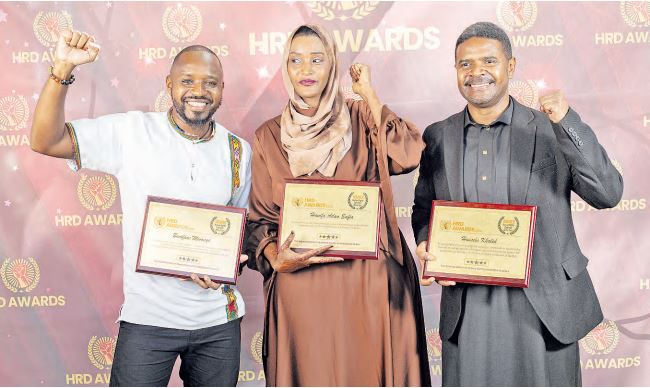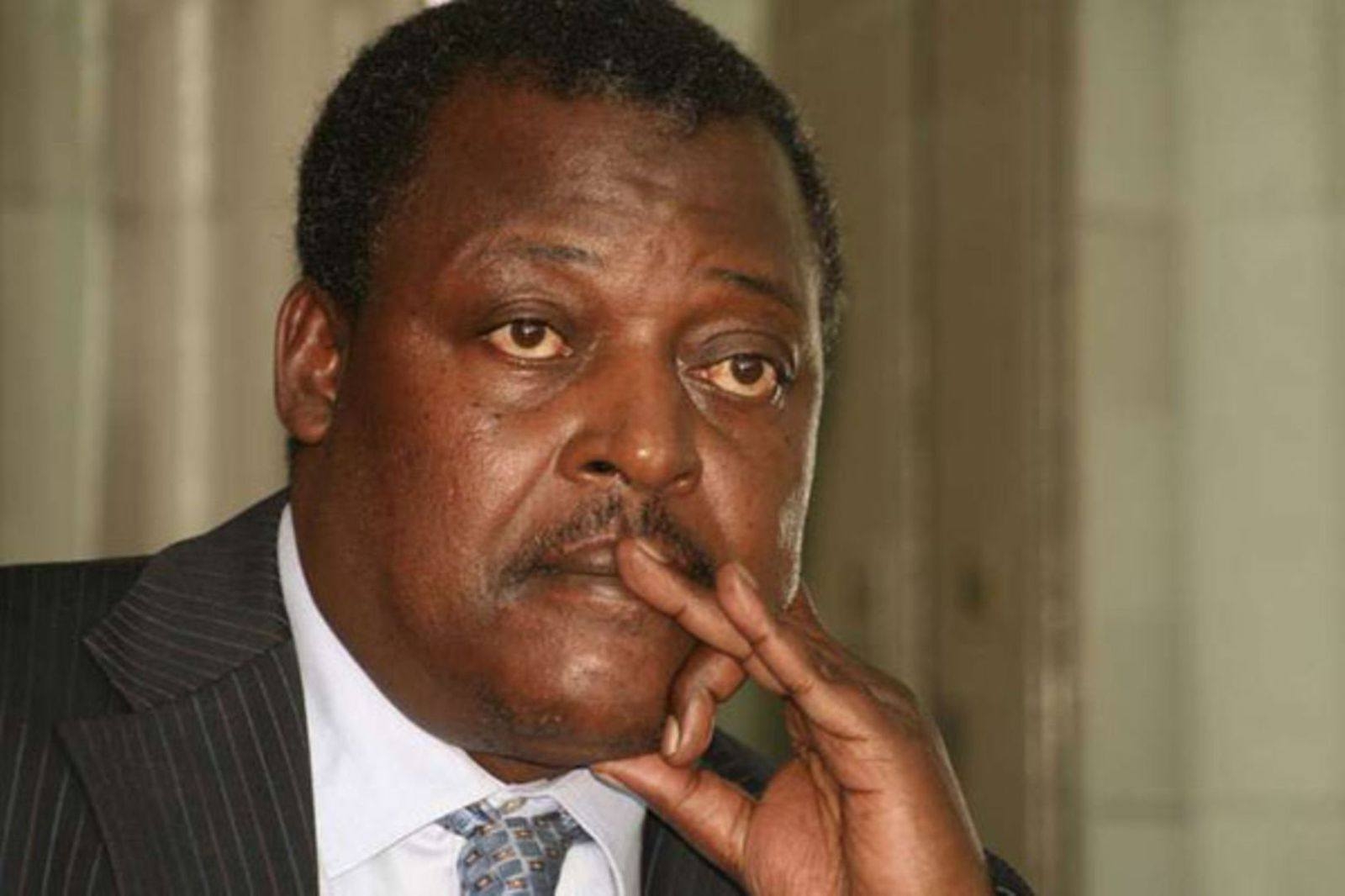
The year 2024 stands out as the activists’ annum in which a textured tapestry of age groups and methods, especially deploying digital media, changed the country and birthed the Third Republic on June 25.
While Hussein Khalid, Boniface Mwangi and Hanifa Safia were cast from different moulds and generations, the mosaic of their experience, fiery patriotism and courage made for powerful agitation.
They won awards as well as brickbats. Hussein is a trained lawyer who has dedicated 25 years to human rights, working against police brutality, enforced disappearance and extrajudicial killings, especially in his Coast backyard.
Mwangi is a former photojournalist, current activist and politician. Safia is a journalist using her megaphone to amplify the voices of the disadvantaged.
Mwangi made a name for himself since the 2007 post-election violence when he worked for the Standard as a photojournalist, covering the bloodletting and morphing into a creative inciter and an irritant to power wielders.
Activist Mwangi in 2013 offloaded blood-smeared pigs at Parliament to protest MPs’ alleged greed and instigating youth to revolt and storm Parliament on June 25 to protest against the Finance Bill this year. He says he speaks “courage fluently”.
Safia has had to defy conservative and restrictive Somali dogma, especially about women, to highlight what she believed to be unjust and unfair.
She was in the limelight earlier this year when she consistently exposed alleged corrupt dealings in Mandera county. And when the Gen Z protests erupt came, the reporter at Eastleigh Voices was at the forefront in mobilising participation, distributing whistles and t-shirts and water to keep the rebellion going.
She was assaulted and detained by a police officer in plainclothes.
DEFENDERS OF THE YEAR
The three told the Star on November 29 that in another life, the struggle for human rights would again be their first choice.
“We struggle for a better Kenya. We protect the constitution and we will not tire in demanding it be fully implemented. I speak courage fluently,” Mwangi said.
He founded the progressive Ukweli Party in 2017.
Mwangi said young people are prepared to push the lines to ensure their rights are upheld, they receive better healthcare, education and benefit from institutions that work for them.
“The government uses police and other security agents to frustrate, brutalise and kill youths, but they should be thankful that we use lawful means because we are also people from the street.”
Mwangi drew the inspiration for struggle from his family and children, wanting to bequeath them a better country governed by the rule of law.
Khalid, the founder and former CEO of Haki Africa, has devoted decades to risky agitations, which have worried his family about his and their own safety.
He participated in the retrieval of bodies from River Yala in 2021, in Tana River and in Shakahola in 2023.
He also championed resistance to the standard gauge railway’s virtual monopoly of transport, supplanting Mombasa truckers.
The July Gen Z protests is the latest in his career of rights activism, in which he has been arrested multiple times and subjected to threats against his life.
He has fled to safe houses when he believed the threats were credible. His family’s location has been kept secret.
During the Gen Z protests, as was his norm, he got in touch with the bereaved families and accompanied them to witness postmortems.
Support has always been his trademark. Khalid has been to mortuaries numerous times, accompanying families in getting the first sight of their relatives bodies.
“This work changes you at some point. You view human life differently. Seeing bodies countless times, especially when they are smelly and being cut to pieces to determine the cause of death, at first is tough,” he told the Star.
ANXIETY
Despite threats to his life, the psychological impact of his work and the anxiety of his family, Khalid says he is only getting started.
“I have been in this game for close to 30 years, embracing mourning families and harassed citizens and standing up to the powerful, with no strings attached. It is an inborn passion. But we are now going continent-wide,” he said.
Khalid, who left Haki Africa, now heads a pan-African lobby known as Vocal Africa.
The Defenders Coalition, the lobby championing the rights, safety and well-being of human rights defenders, honoured Khalid, Mwangi and Safia for their active roles in the Gen Z protests.
The trio is hailed for articulating the public’s issues that fuelled the Gen Z protests and for sustaining the push to find the disappeared and release those arrested without just cause.
Khalid and Mwangi witnessed the postmortems of most of the protesters felled by bullets and attended their burials in various parts of the country to stand in solidarity with the families.
The award citation described Khalid as “a towering figure in Kenya’s human rights landscape [and who] has been a pivotal figure in the country’s post-independence journey, tirelessly advocating for the protection of rights and freedoms”.
“Despite facing intimidation and threats, he remains unwavering in his commitment to this cause,” it said.
The lobby credits Mwangi with activating the anti-Finance Bill crusade that culminated in the storming of Parliament.
It says Mwangi has dedicated his life to serving the cause of justice and that has come with “a heavy price for his family who have faced harassment, [and] the escalation of these hostilities has seen him threatened with harm and or death by forces in government.Despite these challenges, he remains undeterred.”
Besides the Gen Z protests, Hanifa has led other campaigns, such as opposition to draining sewers in Korogocho slums, a practice that had been going on for 30 years. She mounted the campaign on social media, sustaining it for three months and the duty-bearers relented. She also used X to lead to reclaiming of a grabbed parcel in Ridgeways area.












